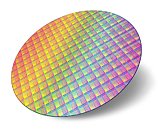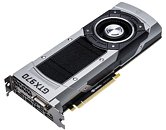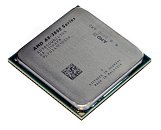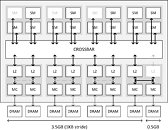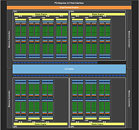
Yuzu Switch Emulator Development Shutdown, Nintendo Demands $2.4 Million in Damages
The open-source Yuzu Switch Emulator attracted immediate Nintendo attention, around The Legend of Zelda: Tears of the Kingdom's launch window. Last Monday, news reports put many spotlights on freshly-filed legal documentation—the Japanese multinational video game firm's North American office took Tropic Haze LLC to court in Rhode Island. The aforementioned limited liability company created and distributed Yuzu and Citra—Switch and 3DS software emulators (respectively). Nintendo's lawsuit claimed that Tropic Haze's Yuzu software illegally circumvents their software encryption, and played a significant role in facilitating piracy "at a colossal scale." A prime example was presented in the case of Tears of the Kingdom—allegedly over one million illicit digital copies were distributed prior to its official retail release. The lawsuit proposed that "defendant (Tropic Haze) is thus secondarily liable for the infringement committed by the users to whom it distributes Yuzu."
According to a new filing, Tropic Haze has agreed to cease all operations and pay Nintendo $2.4 million in damages. This swift announcement arrived much earlier than expected—Yuzu's developer reportedly "lawyered up" late last week. According to Eurogamer: "over the weekend, Tropic Haze announced it had retained the legal services of an attorney and would be responding Nintendo's lawsuit within 60 days, but a new filing has now been spotted confirming both parties have reached a settlement—pending the court's final approval." A permanent injunction prevents Tropic Haze from: "offering to the public, providing, marketing, advertising, promoting, selling, testing, hosting, cloning, distributing, or otherwise trafficking in Yuzu or any source code or features of Yuzu." This order seemingly extends to Citra (their 3DS emulator): "other software or devices that circumvent Nintendo's technical protection measures." Tropic Haze has been ordered to surrender its website domains and turn in all held physical circumvention devices. Yuzu creators are required to not establish "new entities or associations to develop similar Nintendo emulation software" in the future. Open-source "Nuzu" and "Suyu" follow-ups/spiritual successors have already popped up online.
According to a new filing, Tropic Haze has agreed to cease all operations and pay Nintendo $2.4 million in damages. This swift announcement arrived much earlier than expected—Yuzu's developer reportedly "lawyered up" late last week. According to Eurogamer: "over the weekend, Tropic Haze announced it had retained the legal services of an attorney and would be responding Nintendo's lawsuit within 60 days, but a new filing has now been spotted confirming both parties have reached a settlement—pending the court's final approval." A permanent injunction prevents Tropic Haze from: "offering to the public, providing, marketing, advertising, promoting, selling, testing, hosting, cloning, distributing, or otherwise trafficking in Yuzu or any source code or features of Yuzu." This order seemingly extends to Citra (their 3DS emulator): "other software or devices that circumvent Nintendo's technical protection measures." Tropic Haze has been ordered to surrender its website domains and turn in all held physical circumvention devices. Yuzu creators are required to not establish "new entities or associations to develop similar Nintendo emulation software" in the future. Open-source "Nuzu" and "Suyu" follow-ups/spiritual successors have already popped up online.













